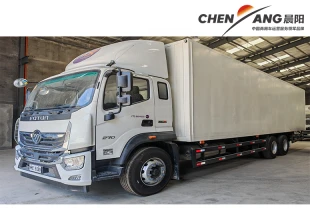Renting Construction Equipment for Your Next Project Efficiently and Affordably
The Importance of Renting Building Equipment for Construction Projects
In the world of construction, efficiency, cost-effectiveness, and time management are crucial for success. One way that contractors and project managers can achieve these goals is through renting building equipment. Renting equipment instead of purchasing it outright can provide numerous benefits, especially for specific construction projects that may require specialized machinery or tools.
Cost Savings
One of the primary reasons companies choose to rent building equipment is to save on costs. Purchasing heavy machinery, such as excavators, forklifts, or bulldozers, requires a substantial upfront investment. Additionally, owning this equipment entails ongoing maintenance costs, insurance, storage, and potential depreciation. For many construction companies, especially smaller firms or those approaching a new project, the financial burden of purchasing equipment can be overwhelming.
When a construction project arises, the total cost of ownership may not be justified. Renting eliminates these expenses, allowing firms to allocate their budget toward other essential areas, such as labor or materials. By renting, companies can also avoid the risk of being stuck with machinery that may become obsolete or less useful after the project is completed.
Access to the Latest Technology
The construction industry is continually evolving, with technological advancements resulting in safer, more efficient machinery. Renting building equipment allows companies to utilize the latest models without the hassle of upgrading their own fleet. This access to newer technology can enhance productivity and ensure that projects are completed more efficiently and with better quality.
When renting, contractors can choose equipment that is best suited for the specific project requirements. For instance, a company may need to rent a compact excavator for a small urban job site while opting for larger machinery for a different project. This flexibility ensures that they have the best tools for the task at hand, leading to superior results and fewer delays.
Flexibility and Scalability
Construction projects can vary dramatically in scope and duration. A project that starts small may expand, requiring additional equipment, or conversely, a project may end sooner than expected. Renting building equipment offers a flexible approach to managing these changes. Companies can quickly scale their equipment needs up or down based on the current demands of the project.
rent building equipment

This adaptability can be a game-changer, especially in industries where timelines are tight, and delays can result in financial penalties. Renting allows businesses to maintain agility, making it easy to adjust resources without the complex logistics associated with buying and selling machinery.
Maintenance and Support
Alongside cost savings and flexibility, renting equipment often includes a significant advantage maintenance and support. Rental companies typically offer well-maintained machinery that is regularly serviced to ensure optimal performance. This reduces the burden on contractors who would otherwise need to undertake maintenance themselves, allowing them to focus on the core aspects of their projects.
Additionally, many rental companies provide 24/7 support and assistance. If an issue arises with the rented equipment, companies can receive help quickly, minimizing downtime. This reliable support can be an invaluable asset when working on tight deadlines.
Environmental Considerations
With growing awareness of environmental issues, many construction firms are looking for ways to reduce their carbon footprint. Renting equipment can contribute to this goal by decreasing the total number of machines needed for various projects. A smaller, shared fleet means reduced emissions, better utilization of resources, and lower waste.
By renting, companies can choose equipment that meets modern environmental standards and think critically about their usage. This consideration of sustainability aligns with broader industry trends focusing on building and construction practices that are more environmentally friendly.
Conclusion
In summary, renting building equipment offers numerous benefits that can significantly enhance the efficiency and cost-effectiveness of construction projects. From saving costs and accessing the latest technology to providing flexibility and minimizing maintenance burdens, renting is a smart choice for many contractors. As the construction landscape continues to evolve, embracing various business strategies, including equipment rental, will be key to staying competitive in an ever-changing industry.
-
Grain Fertilizer Seeder-Chenyang Group|Precision&EfficiencyNewsJul.30,2025
-
2BFY Traction Series Seeder-Chenyang Group|Integrated Seeding,FertilizingNewsJul.30,2025
-
2BFY Traction Series Grain Fertilizer Seeder - Chenyang Group | Precision Farming, Seeding & FertilizingNewsJul.30,2025
-
2BFY Traction Series Grain Fertilizer Seeder-Chenyang Group|Seeding & Fertilizing EfficiencyNewsJul.29,2025
-
2BFY Traction Series Grain Fertilizer Seeder-Chenyang Group|Integrated Seeding&Fertilizing, High EfficiencyNewsJul.29,2025
-
2BFY Traction Series Grain Fertilizer Seeder - Chenyang Group|Integrated Seeding&FertilizingNewsJul.29,2025
Popular products

























